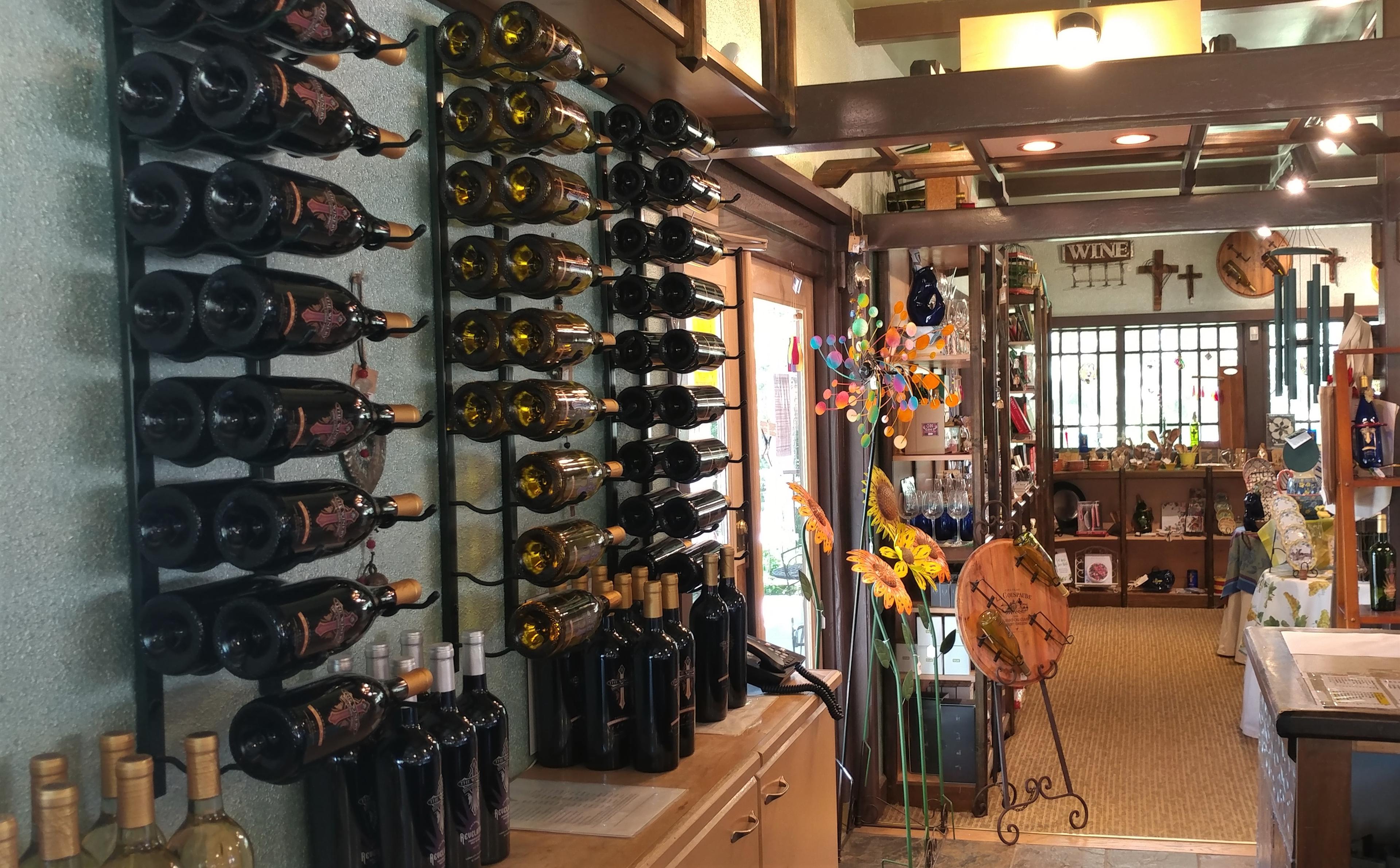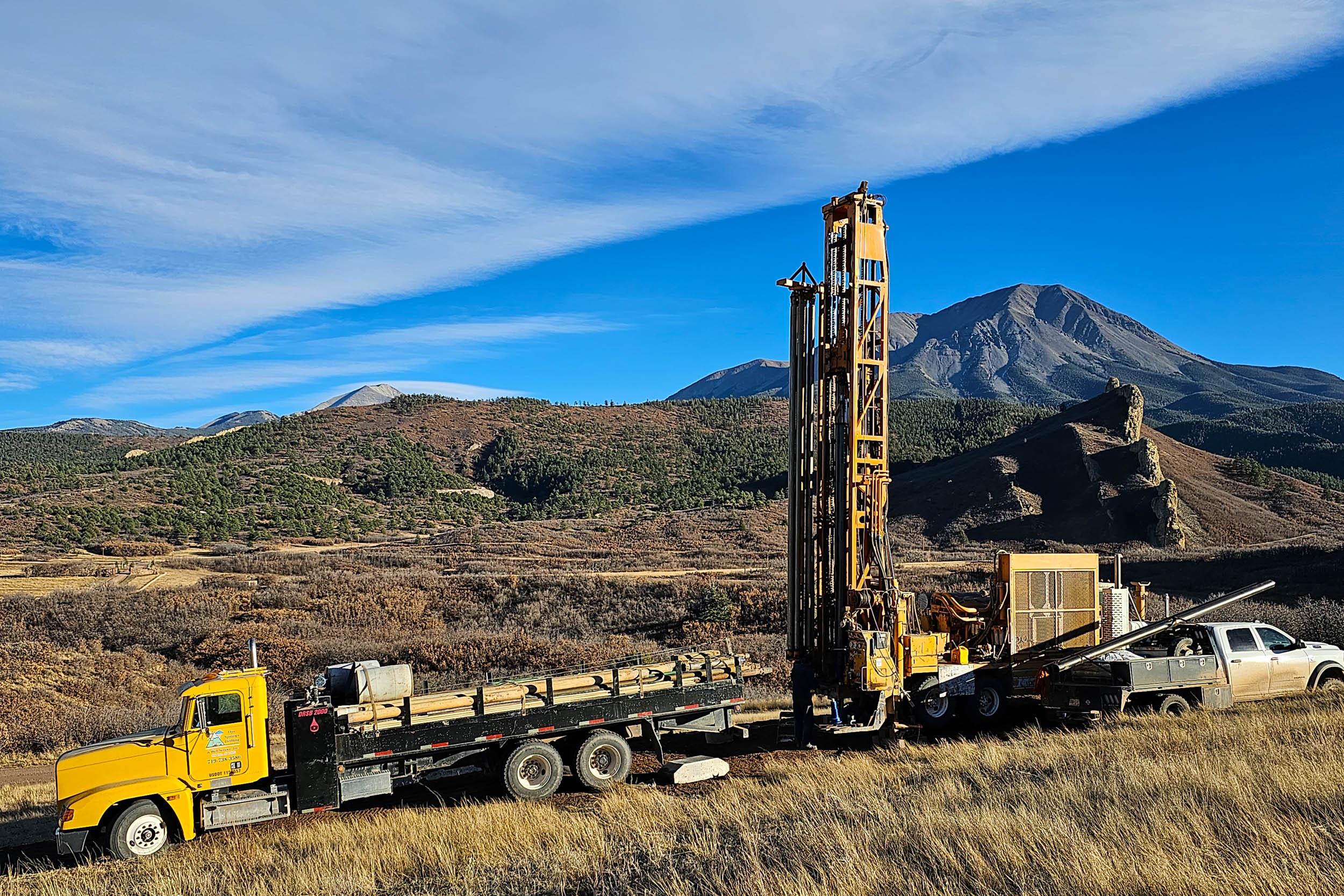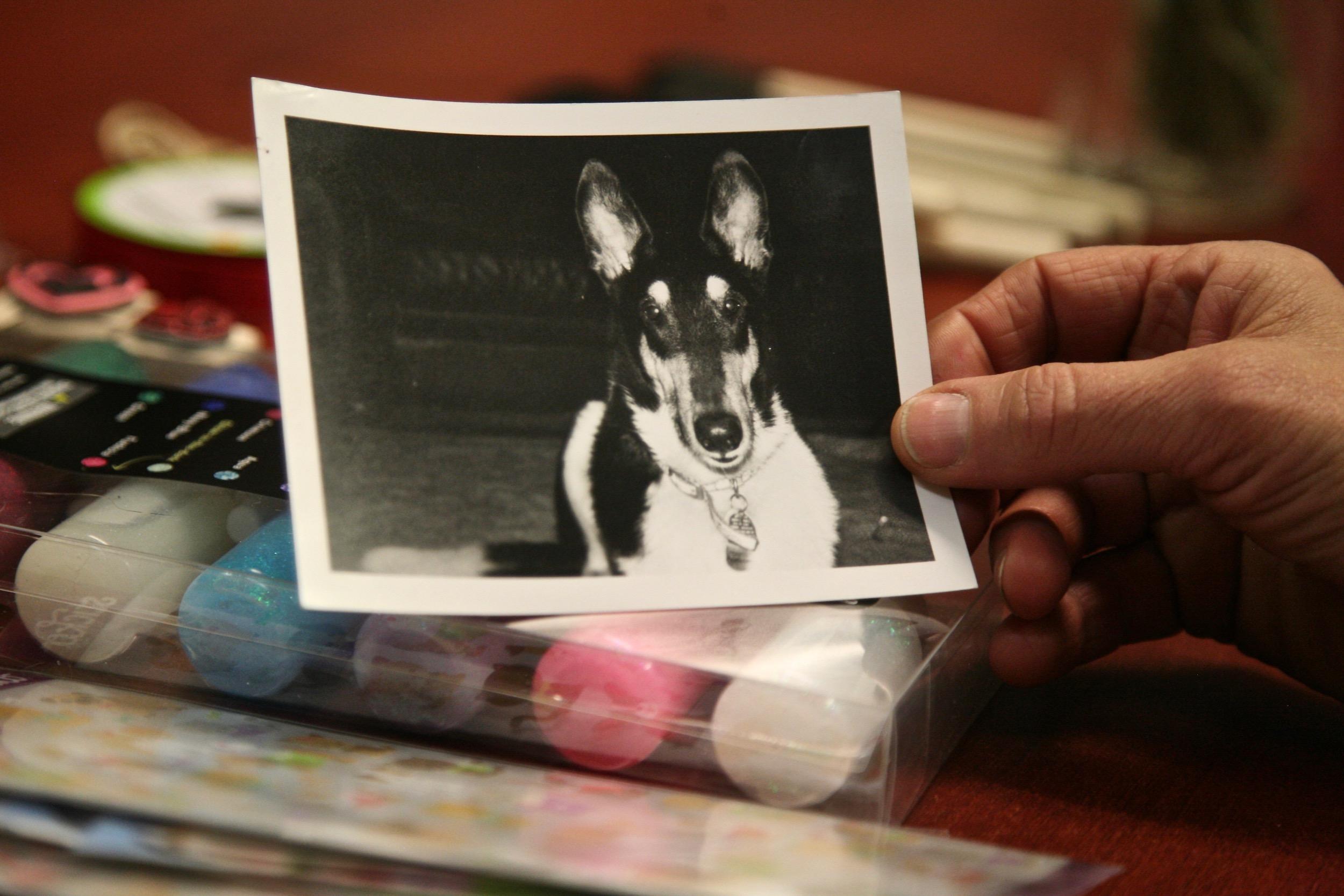
For just one night, every other month, social worker Stacy Schoolfield sets up a spartan room for people to come and share the heaviness in their hearts. It’s especially poignant during the holidays, a time to connect with those we love — and raise a glass to those we’ve lost.
But what about our beloved pets?
A week before Christmas, Schoolfield’s room at the Roice-Hurst Humane Society included paint, glitter, rubber paw-print stamps and a tall stack of blank wooden ornaments. Each one was an open book that awaited photos of dogs and cats to be glued on.
The little pile of bright, happy art supplies would soon morph into tiny, shiny memorials for companions who’ve passed. Schoolfield calls them “linking objects.”
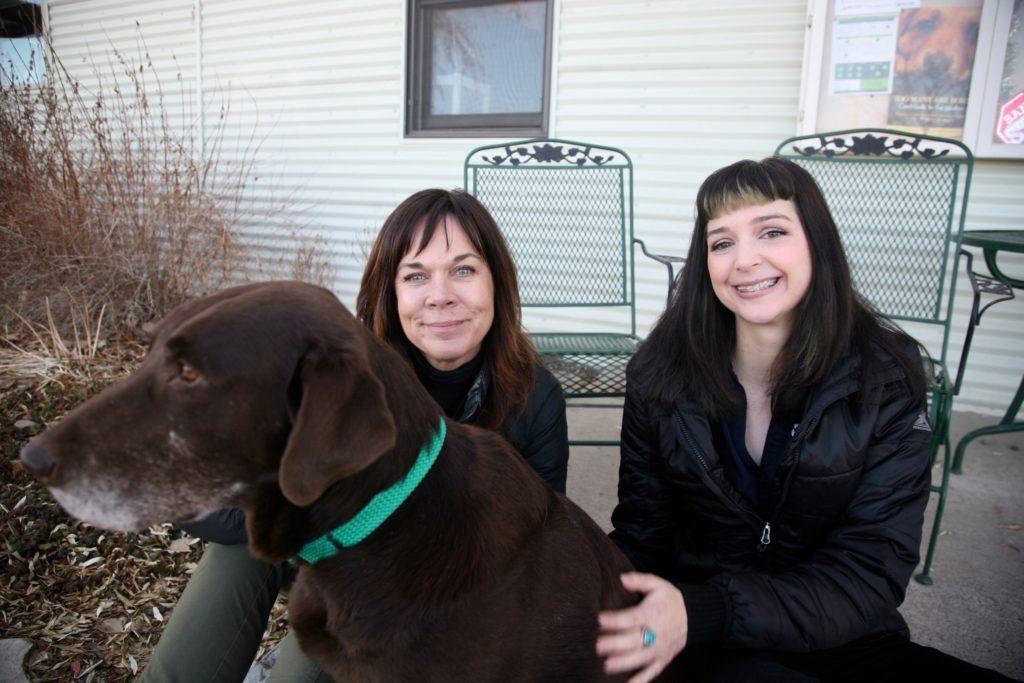
They’re important in this grief work, “so that you remember the animal as they were and all they gave to you, not just the fact that they've gone,” she said.
Roist-Hurst’s Pet Grief Group in Grand Junction is one of a handful of such support groups across Colorado. The hope is to create a space where people can mourn animals they’ve lost, no matter how long they’ve carried that pain. Schoolfield still mourns the first longtime therapy dog she used in her work, a “very good boy” that would help children open up and feel safe.
Abbott died three years ago, but she still thinks of him all the time.
“And that's because he was important to me and he changed my life, and honoring that bond is what this is about,” she said as the tears start to well up.
There is always crying in this room, which is part of why the only ones allowed in this session are those walking through their pet grief, not curious journalists. It’s not easy to show up for a support group for a loss many don’t take seriously.
Group member Jack Taylor can’t say how many times he’s heard the same refrain: It’s just a dog.
“Please, it’s not just a dog,” he said. “It’s my family. It’s my heart.”
And still is, a year after the death of his long-haired Chihuahua-Tibetan-Spaniel mix.
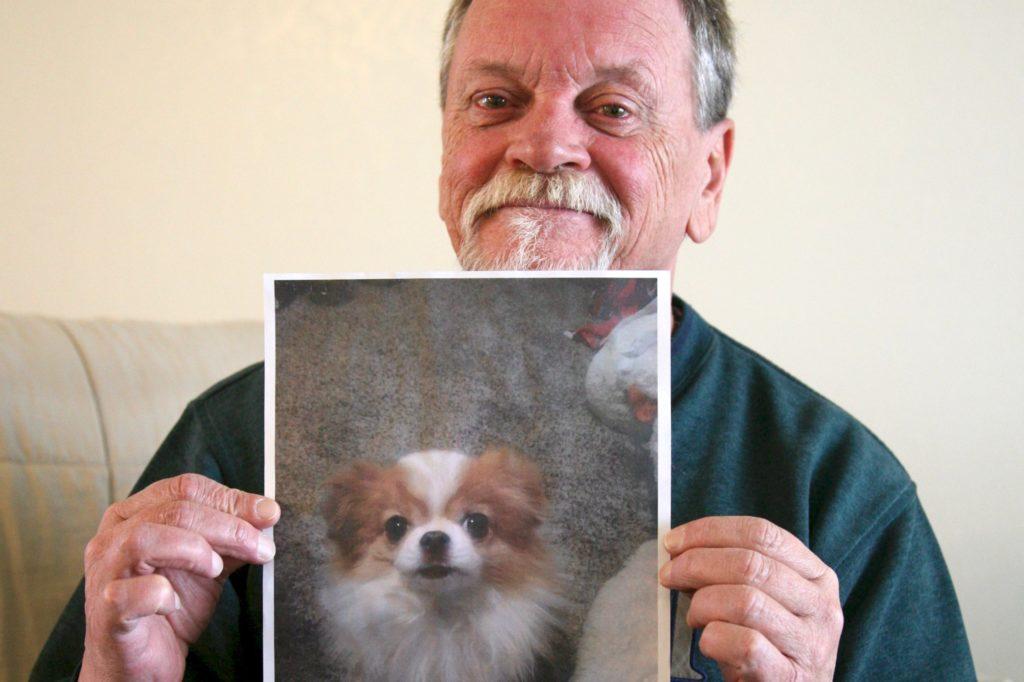
Jazz was “about the size of my shoe,” Taylor said, but with a big personality, one that can be felt all over Taylor’s apartment. Jazz’s big stuffed bear and bed are in Taylor’s bedroom. There’s a little shrine of sorts in the main room, with Jazz’s photo, pawprints and a box that holds the smallest bag of ashes you’ve ever seen.
With wet eyes, Taylor explained he finds comfort in these mementos.
“Because when I leave, I tell him ‘Have a good day,’ and when I come home, I say, ‘I'm home buddy,’” he said.
Those are the things he can share with the group that he can’t with the rest of the world.
Without having this place to connect with others going through the same thing, these feelings may have felt illogical, stupid even for Taylor. But because he decided to walk into the group — which he did only a few days after Jazz’s death — he’s been able to feel his heartbreak, without forgetting the happiness his dog still brings him. Taylor doesn’t know if he could have gotten through his divorce or the loss of his two sisters without him.
“I cannot imagine what I would be like right now, in this moment,” he said with a cracking voice and heavy, teary pauses. “If I didn't have my 11 years with dog, I'd be less than a man.”
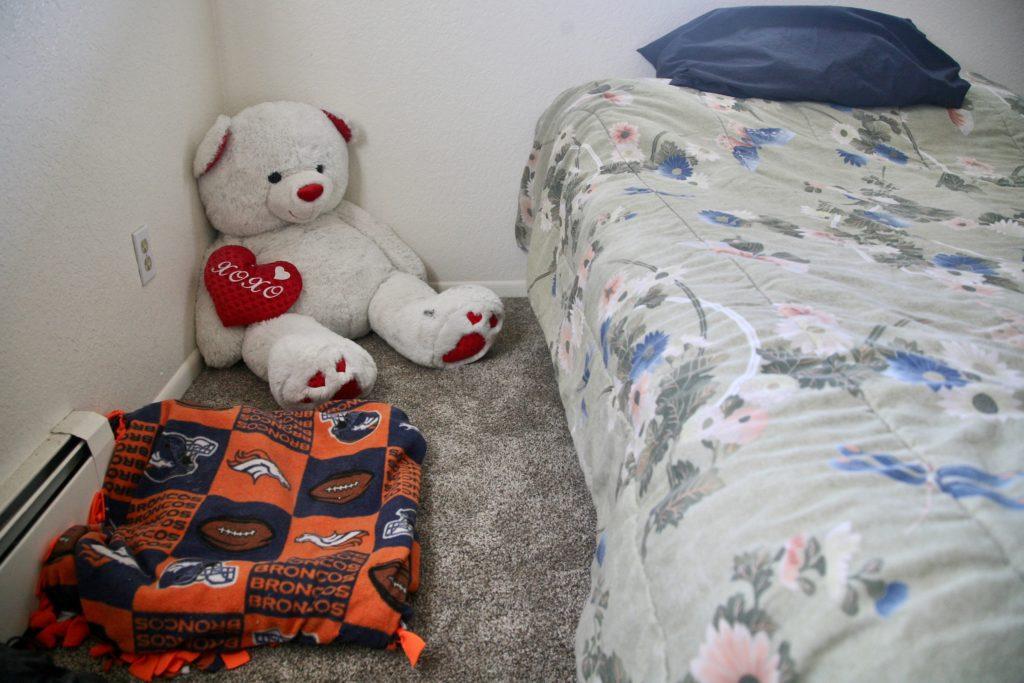
Hearing folks share such raw, real feelings is an honor for Mila Ravelle who works for this branch of the Humane Society. She’s been to the group to grieve pets she had years ago as a child and animals she cared for at the shelter. She was surprised by how natural it felt.
“Nine people went before me and every single time we all cried, we all felt that one person's experience,” she said. “You know, we all were so connected to each other.”
Brazillian by birth, this kind of connection was new to her. In her home country, the loss of a pet wasn’t acknowledged at all. She always felt her grief was invalid, even though she found herself connecting more to her pets than people.
Now, with two cats at home who are getting close to a decade old, she finally has the chance to grieve animals she’s lost, as well as the ones she knows she will someday.
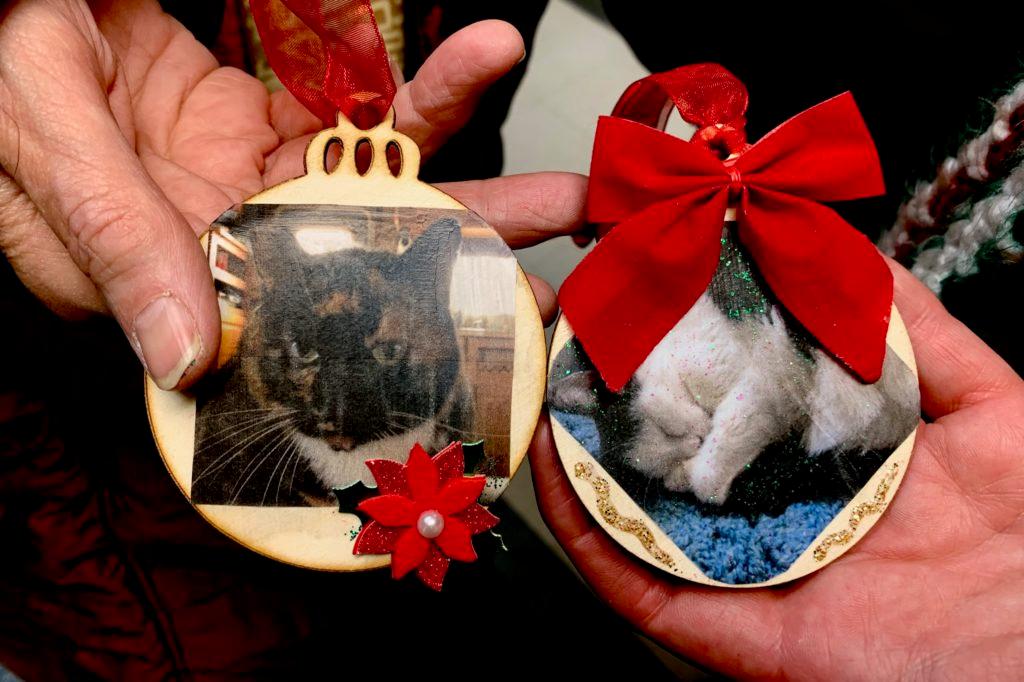
“I'm not going to say this is such a fun experience. It's not, healing is not fun. Healing hurts. Talking about it hurts,” she said. “But when you learn how to do it, and the more often you do it, the lighter you feel.”
And lighter is exactly how everyone looked as they left that session, drying ornaments in their hands and smiles on their faces. They’d clearly been crying, but also laughed on their way out.
They’d talked about the inescapable heartbreak of losing a pet, but also the joy of it, how love and loss are forever linked. Schoolfield, tears welling up again, explained that it’s good to have a way and a place to celebrate that push and pull.
Truly, it’s about gratitude, she said, “for these animals that came into our lives and changed them. Changed our lives for the better.”
And forever.

